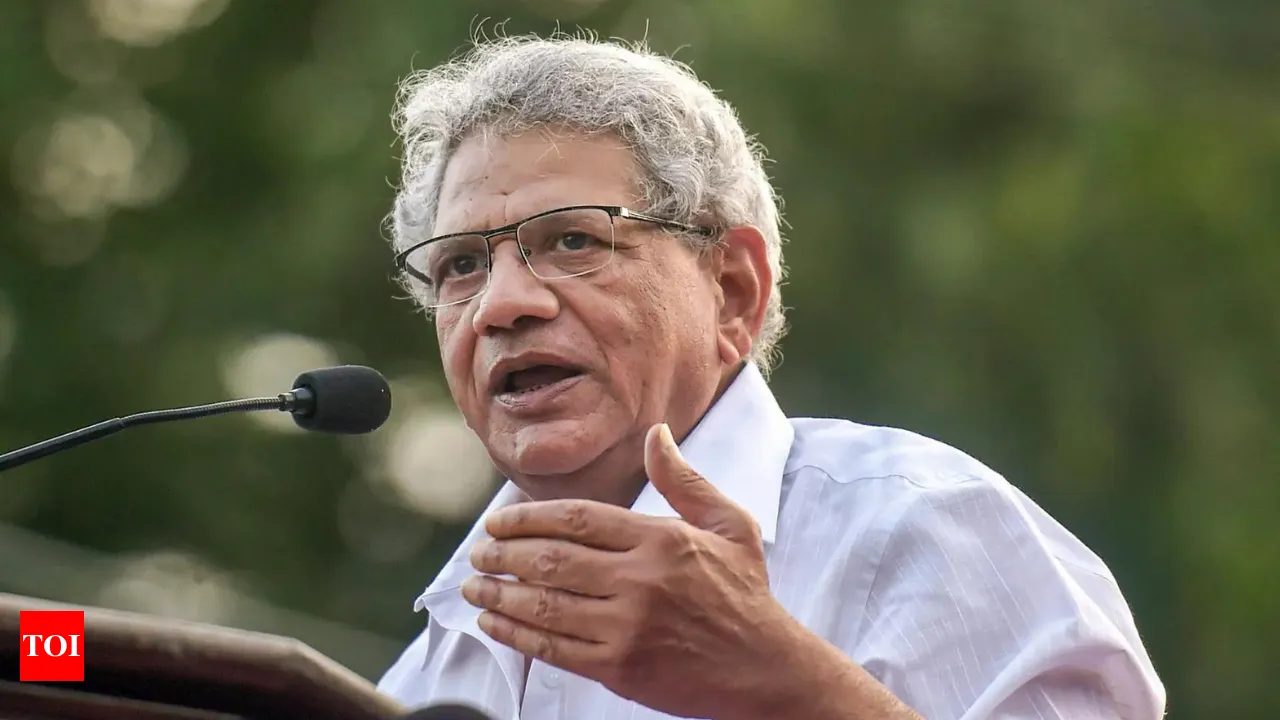Sitaram Yechury: A Veteran CPM Leader’s Impact on Indian Politics

NEW DELHI: Veteran CPM leader Sitaram Yechury passed away on Thursday at the age of 72 after prolonged illness, marking an end to a political legacy that spanned almost 5 decades. Yechury was undergoing treatment for Pneumonia at All India Institute of Medical Sciences (AIIMS), New Delhi.
Yechury was born on August 12, 1952, in Chennai and was raised in Hyderabad and Delhi. From campus to Parliament, marking the beginning of his political career at Jawaharlal Nehru University (JNU), he became a prominent leader in the Students' Federation of India (SFI) and was deeply involved in student movements.
His activism during the Emergency period (1975-77) further established him as a fervent advocate for civil liberties and left-wing principles.
He served as a Rajya Sabha member for 12 years, from 2005 to 2017. On April 19, 2015, during the 21st party congress in Visakhapatnam, he was elected as the fifth general secretary of the CPIM, succeeding Prakash Karat.
He also played a key role in the INDIA bloc, the coalition of opposition parties. Additionally, he was recognized as one of the political mentors of Congress leader and Lok Sabha leader of opposition Rahul Gandhi.
Yechury and his fight with the powerful. The communist leader successfully pressured Indira Gandhi to step down as the university's chancellor. From being a comrade to the farmers during their recent protests to those of the migrants during Covid, he was a voice of criticism for those in power, including the BJP government.
At several instances, the communist leader opposed tax concessions given to the rich and demanded its investment in food security, the right to education, health, and infrastructure, to ensure massive employment.
This article was prepared using information from open sources in accordance with the principles of Ethical Policy. The editorial team is not responsible for absolute accuracy, as it relies on data from the sources referenced.